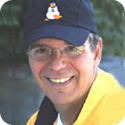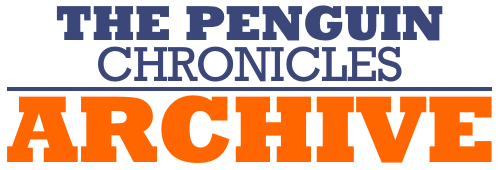One very long day
 When a friend suggested running the Hood to Coast relay, a 200 mile team race from the summit of Mount Hood to the Oregon coast, I was less than enthusiastic. I'd heard very good things about the event, but wasn't convinced that I had the nerve or the patience to run three times over 24 hours while riding in a closed vehicle in between. I couldn't imagine the dynamics of six sleep-deprived runners trapped together in a van for 36 hours.
When a friend suggested running the Hood to Coast relay, a 200 mile team race from the summit of Mount Hood to the Oregon coast, I was less than enthusiastic. I'd heard very good things about the event, but wasn't convinced that I had the nerve or the patience to run three times over 24 hours while riding in a closed vehicle in between. I couldn't imagine the dynamics of six sleep-deprived runners trapped together in a van for 36 hours.
I wasn't enthusiastic as I boarded the plane for Portland. I wasn't enthusiastic as we sat around eating dinner devising our race strategy or loading the van with enough food to feed an infantry regiment. And I definitely wasn't enthusiastic as we all gathered in a cabin the night before the race.
Most of the team members were veterans of the Runner's World Alaska cruise. Thinking back, it seems to me that the idea of doing the race came after a night that included more than a few adult beverages. It's funny how an idea that sounds great a year in the future suddenly turns into what you're doing tomorrow morning. I'm happy to report that all my misgivings were for nothing. The team, the race - the entire experience was fantastic.
Team captain, Cindy, assigned the rotation. For reasons that are unclear to me, even after asking her nearly non-stop for 48 hours, I was runner number two, legs 2, 8 and 14, the second most cumulative miles of all the rotations. Leg two begins with a six mile downhill run that drops 1,500 feet. While it's not as tough as leg one, it's enough to make you wish you could exchange your quads for fresh ones. Leg eight is on part of the Portland marathon course, and I still have no idea where leg 14 was.
The good news about being early in the rotation is that you finish your segment early. That's also the bad news. You spend most of your time trying to get ready for your next leg. That, and trying to eat, sleep and cheer for your teammates.
The 1,000 teams in the race start in waves of 50, every 15 minutes, for over 12 hours. Teams predicting the slowest times start first. This meant that we started being passed within the first hour and continued to get passed for the next 32 hours. There wasn't one leg where we weren't passed. A weaker team would have gotten discouraged.
But not us. With every mile, with every leg, we got stronger. With every hour, we got closer to the finish and closer to each other. We learned what made each other laugh, what irritated us, what we liked to eat and how our bodies functioned. We also learned that despite differences in gender and age and more, we were all struggling to find something in our running that we couldn't find anywhere else in our lives.
The hours and miles wore away our masks. We dropped our disguises and our inhibitions. Whatever it was that separated us at the beginning now bound us together. We learned that the only people we could truly count on, and the only ones that truly mattered, were the one running and the ones sitting in the van. We became our own world.
Because we were in the first van, our race was over nearly five hours before the actual finish. As we sat at the beach watching team after team finish, I fell asleep. This provided my teammates with the opportunity to put a "will run for food" sign behind me to the delight of nearly everyone who passed by.
When we spotted our final runner we rushed to join her as she crossed the finish line. It was a moment unexpectedly absent of much enthusiasm. Rather than the sort of crushing emotions that I've experienced at the end of other long events, this was marked by an almost silent acceptance that no one of us had held the key to finishing. Each of us was required only to do our part.
As is so often the case, a life lesson came to me a day or so later. I hadn't tried to do more than my part. I hadn't tried to take control or even responsibility for anyone else's runs. I was there to do my part. And doing my part was all that I needed to do. It's all any of us ever needs to do.
If I was tired, I still had to run. If someone else was tired, I couldn't run for them. I had to take care of myself in order to take care of the team. The most selfish act would have been to focus on everyone else and forget about myself.
Giving too much became an act of betrayal. We each had to find that point of balance between taking care of ourselves and watching out for each other. We had to share our resources without depleting our own reserves.
It is a balancing act that many of us are not very good at. We are often fooled into thinking that caring for others is more important than caring for ourselves. We deceive ourselves into believing that if we give away what we truly need, that someone else will provide it for us. It isn't true.
Once again, running has been my greatest teacher. I've learned that I am only ever responsible to be me. I cannot run, think, feel or chose for anyone else. I need only to live my life well and let others be free to do the same. We live our lives alone with others, and with others, but alone. And in the end, life is a victory that we share.
Waddle on, friends.

